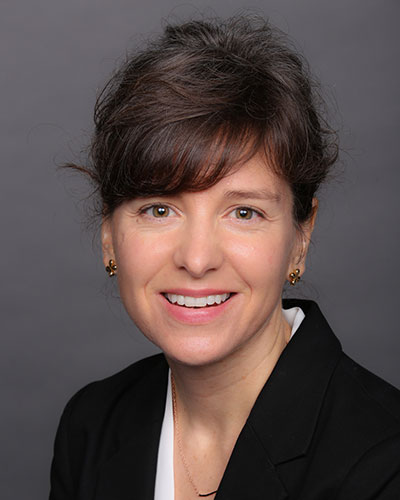
Name: Juliane Mills
Hometown: Coloma, MI
Undergrad Degree: Medical Technology, University of Rhode Island
Graduate Degree: MS Science Communication and MS Public Health, Drexel University
What do you currently do for work?
I design clinical studies for products that are already approved for commercial use. The purpose of these studies is to collect data for the FDA about long-term safety effects or provide data for manuscript publications, congress abstracts and posters. My responsibilities include writing the operational strategy for the study proposal, designing the study protocol, and reviewing the statistical analysis plan and final study report.
What made you decide to pursue the MS COM and MPH at Drexel?
I wanted to grow in my career and, even though I had over a decade of working experience, it was clear I needed an advanced degree to move up.
Did you earn your degree while you were working? What was your experience balancing work and school?
I earned both my Master’s degrees from Drexel while working; I completed the MPH through the executive program (specifically designed for “working professionals” with weekend courses) and attended evening classes on campus for the MS Comm.
I already had time management and Microsoft Office skills coming into the program since I travel quite a bit for work and frequently write documents and make presentations for clients. However, I did schedule a few full- or half-days off from work before my final graduate project. This assignment required a high level of concentration, and I found I was more effective during an unbroken stretch of time rather than catching 1 or 2 hours here and there after work and in-between family/life obligations.
What aspects of the MS COM program would you highlight to a prospective student?
I had a very strong science background coming into the program (I worked as a hospital laboratory technician and in pharmaceutical drug discovery for almost a decade). Even though I understood the science I practiced, there is an art to science communication that I had to learn. For me, this curriculum strikes the right balance between Science and Communication coursework. I would encourage anyone, no matter the depth or specialty of their science background, to consider the program if they want to advance their communication skills and experience.
I have relied most heavily day-to-day on lessons learned in Professor Stein’s science statistics and Professor Souder’s ethics in science classes. Even today years after graduation, I still turn to my study notes and readings from these classes as touchstones.
Are there any projects that were particularly helpful?
My advice would be to take the writing assignments seriously – as if you were to use them as examples of your work for a job interview. After completing the program, I was trying to transition into a new field where I could do more science writing. I literally used my coursework assignments as examples of my writing – and was successful in getting the job!
Anything else you’d like to add about the program?
All the professors I had during the program offered the flexibility to tailor each assignment to make it meaningful for every student. Incoming students and/or potential applicants should appreciate that this requires a lot of extra effort from the faculty – it is much easier to grade assignments if every student completes the same assignment and covers the same topic or event. Drexel educators are committed to ensuring each student gets the most value and utility from his/her education.